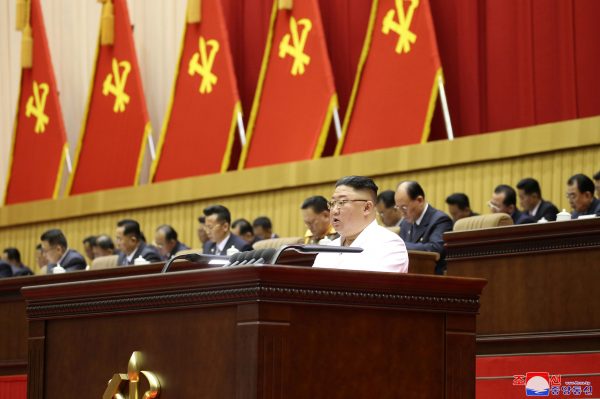North Korean agents detonated explosives at a mausoleum in Yangon in October 1983 during an official visit by South Korean president Chun Doo-hwan. He escaped, but over a dozen of his compatriots were killed, including four cabinet ministers. It wasn’t until 2007 that North Korea and Myanmar reconciled, driven by realpolitik considerations such as Burmese natural resources and DPRK military and nuclear technology trade.
That these specific actions resulted in little consequence may well have emboldened the Kim family regime. But there is a limit to how far Pyongyang can escape the long arm of UN resolutions and sanctions and punitive pressure from the United States.
Singapore is an illustrative example. Despite excellent relations with North Korea and attempts to minimise adversarial international relations, Singapore was compelled to clamp down on a Singaporean firm facilitating arms shipments to North Korea in 2016, suspend all trade with North Korea in November 2017, and seize and dispose of thousands of litres of wine destined for North Korea in January 2020 in order to comply with luxury goods sanctions. Singapore felt the need to uphold international law and support US denuclearisation efforts, superseding any legacy of a positive relationship with the North.
As for Malaysia, Kuala Lumpur–Pyongyang relations soured after North Korean leader Kim Jong-un ordered the assassination of his half-brother Kim Jong-nam at a Kuala Lumpur airport on 13 February 2017. While the economic realities of the COVID-19 pandemic, US pressure and the need to focus energies on domestic political imperatives could all have possibly lead to reconciliation, Malaysia opted not to press the reset button. Instead it extradited North Korean citizen Mun Chol-myong to the United States to stand trial for money laundering and other sanctions evasion charges.
North Korea reacted by severing relations with Malaysia on 19 March 2021, and Pyongyang’s diplomats were compelled to exit the country shortly after.
In addition to UN sanctions, Washington is successfully tightening the thumbscrews on North Korea by convincing ASEAN nations to faithfully implement international sanctions. Singapore and Malaysia are firmly committed to the pressure campaign against North Korea — invited by the Kim regime’s nuclear and missile programmes — in line with UN resolutions. It is thus logical to assume that the Biden administration will succeed in convincing other ASEAN members that maintain friendly relations with Pyongyang — such as Cambodia, Indonesia and Laos — to assist in isolating the North.
It could be productive to strongly encourage Phnom Penh, Jakarta, Vientiane and others in the region to tighten surveillance of Pyongyang’s embassies and nationals to deter and stop illegal activities such as smuggling and illicit fundraising. Washington can certainly do more to deprive Pyongyang of funds and sanctioned goods.
For example, there is an agreement between Cambodia’s Hun Sen government and the Kim regime that revenue generated by the North Korean-built Angkor Panorama museum can be remitted back to North Korea. This could be disrupted if Washington can convince Phnom Penh to withhold the revenue stream ‘in trust’ until the Kim regime implements nuclear disarmament.
The Biden administration could offer other incentives, such as tailored economic, political or military benefits, to nudge ASEAN states into compliance. This may include pledges to buy more products, support for these state’s foreign policies, and military-to-military interaction. The resources the United States can offer far outstrip anything North Korea can, and could well convince these nations to abandon quiet or covert cooperation with Pyongyang.
The phrase ‘death by a thousand cuts’ implies the defeat of an opponent by eroding their defences through a multitude of small measures or attacks. Applying this incremental approach to critical sources of hard currency and materials for the Kim regime could assist the United States in its goal to force Pyongyang to abandon its nuclear and missile programs.
Liang Tuang Nah is a Research Fellow in the Institute of Defence and Strategic Studies at the S Rajaratnam School of International Studies (RSIS), Nanyang Technological University, Singapore.

